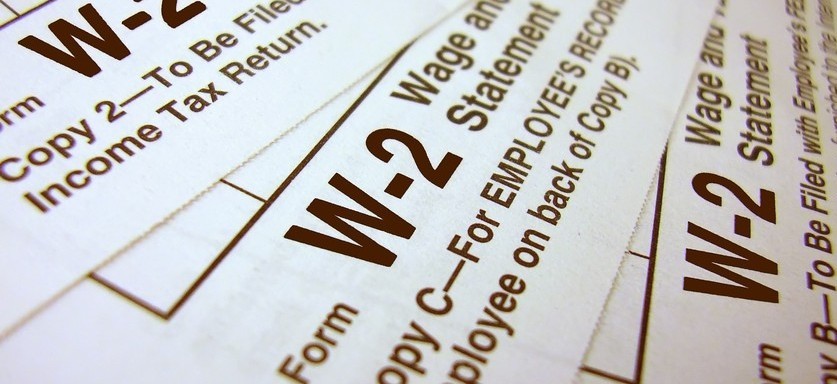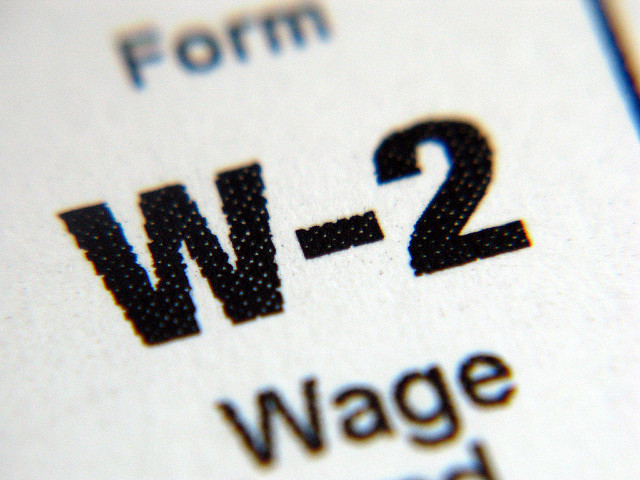Most business owners are aware of IRS requirements for W-2 reporting. If not, they should be. A W-2 is a concise report of an employee’s wages and other earnings, such as tips. It also includes the taxes a company has withheld for federal, state, and local agencies. Employees use the information on this form to file their income taxes. Most employers issue correct W-2 forms to their employees. However, things don’t always go as planned. Let’s explore four legal problems employers and employees face — including expensive IRS penalties — and how to avoid them.
What Is the Law Regarding W-2s?
Image via Flickr by frankieleon
It’s an employer’s legal responsibility to issue annual W-2 forms to its employees if they earned at least $600 or were subject to withholdings, such as Medicare or Social Security. Most companies report these taxes on behalf of their employees. These forms must be issued no later than Jan. 31, or the first business day of February, for receipt by Feb. 14. Employers must submit a copy of each employee’s W-2 to the Social Security Administration by the end of February or by March 31 if filing electronically.
What If an Employer Doesn’t File a W-2?
The IRS has strict deadlines for reporting. If a business fails to file Form W-2 by the deadline, that company is subject to penalties. The fees are $50 per return with a maximum payment of $187,500 if the employer gets the W-2 form in within 30 days. If the business intentionally disregards the filing, the penalty is $530 per return with no cap on the overall penalty. Mistakes and oversights happen, although consistently failing to file your employees’ W-2s certainly doesn’t look favorable from the employment tax enforcement perspective. Evading these taxes comes with severe consequences.
Penalties for Falsifying Form W-2
When an employer provides false information on a W-2 form, intentionally or not, the employer could face penalties from the IRS. Careless bookkeeping is often the culprit of these incorrect records, resulting in false reporting of wages and withholdings or missing critical deadlines. Intuit’s all-inclusive IRS-approved W-2 kits make it easy for employers to issue correct forms and avoid penalties. Fraudulent W-2 reporting carries a minimum penalty of $250 each form and a possible civil suit by the employee. However, if an employer can demonstrate a reasonable cause for the error, it may be able to avoid paying these penalties.
Employees Who Provide Fraudulent Information
Employees are also subject to penalties and fines if they provide their employees with incorrect W-2 information. Knowingly filing a tax form that is inaccurate is considered perjury and carries fines of up to $250,000 and the possibility of a jail sentence of up to three years. If the incorrect filing was intended to evade a tax bill, that jail sentence rises to five years. The IRS won’t excuse an employee from filing because they didn’t receive their W-2, so it’s best to call the experts for more information.
Take advantage of business accounting software like QuickBooks from Intuit and relieve the stress of potential legal troubles with W-2 forms.


